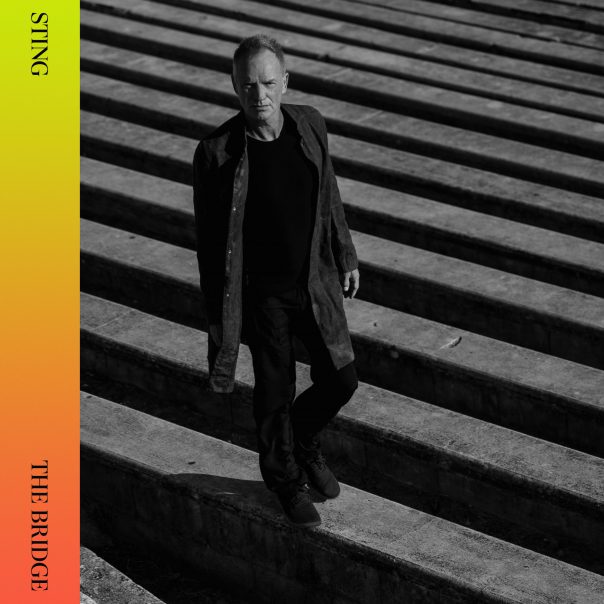REVIEW: Sting searches for connection and common ground on ‘The Bridge’

Sting, “The Bridge.”
Sting has stayed busy in recent years, releasing three albums and staging a Broadway musical; yet his musical output has centered largely on reinterpretations of his songbook (2019’s My Songs), collaborations with other artists (44/876) or a combination of the two (March’s Duets). Did he have anything in the tank for new songs of his own? The question is resoundingly answered in the affirmative on The Bridge, his remotely recorded new album that offers a little bit of his rock oeuvre, his sensual love balladry and some jazzy numbers, too.
The Bridge
Sting
A&M/Interscope/Cherrytree
Nov. 19
8/10
While this is a lockdown album with its themes of loss, separation and unrest, and with Sting and the members of his band spread out and not in a shared studio, the album still manages to be so cohesive and the musicianship so tight.
The Bridge opens with its most raucous and best track; the Police-recalling “Rushing Water.” The drumming is most notable here musically, along with muted guitar riffing, setting a tone that remains for the opening bit of the album. Using layered vocals, Sting sings of “Jonah and the Whale” and a raging river that represents his fears. The song introduces the concept of the album, with the river being humanity’s divide and the “bridge” being the thing to bring people together with each other, their past and—to Sting—between life and death itself.
It’s followed by another upbeat poppy single, “If It’s Love.” This is a happy-go-lucky and trope-filled song, kicked off with a whistled riff before the rest of the band joins in. There’s a short funky brass section that’s not overpowering, as well as a string section. The song is also optimistic, focusing on a love that Sting compares to an illness, calling out his symptoms.
“The Book of Numbers” starts slowly but features a rocking chorus, bridging the album’s start to its heart. Sting again sings of Bible parables and scriptures and “fools in the courts of power.”
“If I storm the gate of heaven, I’ll find myself in hell,” he sings. There’ a lot to take in, but the general gist is about the dangers of zealotry.
On the surface, “Loving You” is about the split between two lovers and their failure to communicate, fueled by jealousy and distrust. But it can also be interpreted as the divide between people as a whole and how the actions by some could have caused others to lose faith in them. “You say that I don’t listen/ That I don’t give you no respect,” Stings sings on the first line of the moody and dark slow-burner.
“Harmony Road,” meanwhile, is a bridge between the artist’s pop and jazz interests. The song, as well as “The Book of Numbers” and “The Bells of St. Thomas,” feature lead turns by his long-time guitarist Dominic Miller. As such, the latter tune is the album’s other jazzy highlight; this one airier, with crisp cymbal work and a smooth melody that lets listeners focus on another gospel-tinged story narrated by Sting.
The “Fields of Gold” classical-music-influenced songbook gets a spin on songs like lovelorn ballad “For Her Love,” and some of the highlights on The Bridge come on folky tunes inflected with either synth or slide guitar. “The Hills on the Border,” with its violins, accordion and plenty of mood, sounds like a cross between Richard Thompson and October-era U2.
The album’s title track and “Captain Bateman” lean more toward the folk, while “Captain Bateman’s Basement,” a bonus track available on the deluxe edition of the album, is something else entirely, blending jazz and elements of electronic music. It’s far from club music but an interesting B-side. Other deluxe album extras include a faithful cover of the now-standard “(Sittin’ on) The Dock of the Bay,” English folk standard “Waters of Tyne”—the acoustic arrangement here makes it the best of the extras—and “I Guess the Lord Must Be in New York City,” a lounge-like, almost tropical tune that’s an exclusive on the Japanese version of The Bridge.
Follow editor Roman Gokhman at Twitter.com/RomiTheWriter.
